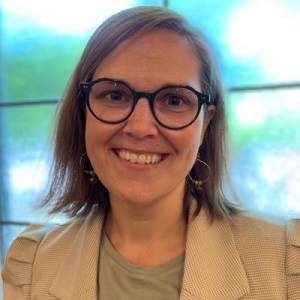 Creating Conversation is a weekly editorial, curated by the Centre for Missional Leadership (CML), which gives opportunity for people to speak about issues they believe are vital for the church in Vancouver.
Creating Conversation is a weekly editorial, curated by the Centre for Missional Leadership (CML), which gives opportunity for people to speak about issues they believe are vital for the church in Vancouver.
One of the goals of this weekly article is to spark dialogue – and action. We invite you to join the dialogue here on the Church for Vancouver website.
We also invite you to use the article as a discussion starter with your small group, church staff, friends and your neighbours. Thanks for participating in the conversation!
Have you been in a conversation and gotten a little hot under the collar, or anxious, or even annoyed and weary when you heard a certain word?
For some, hearing mention of deconstructing the faith, of being woke, of critical race theory, or quibbling over what it means to ‘speak the truth in love’ in spaces where we disagree with one another is enough to end the conversation before it begins.
Before we get too far, this editorial isn’t about solving that problem. Instead, I hope to raise what I see as a problem behind the problem.
We can’t avoid using words to describe trends, experiences, postures or ideas. But, it seems all too easy to purposefully misunderstand or even manipulate and weaponize those words for judgment or to form boundaries and create divisions among us (i.e., the problem we most often experience in those frustrating conversations).
Now, don’t get me wrong, clarity and conviction about what we mean and what we understand can be positive traits, useful in the life of discipleship and missional living as we seek to be obedient to God and God’s big-t Truth about and for the world.
But what I’ve found, both as a pastor and as a student of the history of Christianity, is that when we get repeatedly defensive and ‘fight’ for the meaning of something we also, oddly, can become disconnected from the very heart of the thing we are trying to defend.
Hopefully an example will explain what I mean. I remember talking with my grandparents once about the two natures of Jesus Christ, fully human and fully divine. And my dear grandma, adamantly committed to defending the fully human nature of Jesus – as she had been so devoutly taught in the church – could not fathom the big-t Truth that before the incarnation the second person of the Trinity existed as something other than a man (and she meant male). Jesus Christ was Jesus Christ as she understood this ‘most important’ aspect. Period.
Over time, the need to highlight one aspect of an eternal truth led to such a narrowed focus, a sound-bite version that could be repeated on the spot and wielded and weaponized as needed, that a connection to the whole of the truth had been lost. Sometimes, there are dire consequences to this well-worn pattern of human behaviour.
For someone like my grandma, Jesus’s humanity and maleness, when it became disconnected from the cosmic nature of the second person of the Trinity, led to viewing women as lesser image bearers of God. Her flawed anthropology flowed from her flawed theology and, of course, mixed with cultural and social messages and teachings that reinforced the part of the truth she focused upon. These flaws found their way into her discipleship and missional living.
Though she was a woman of prayer and faithful to attend Bible study group and worship services twice on Sunday, I can’t help but wonder if there were areas of service that the Holy Spirit called her to that she did not heed because she did not think highly enough of herself as a woman of God.
I know from experience that there were ways she held her daughters and granddaughters to a different standard than she did her sons and grandsons. Her views on appropriate spheres for women to be involved in were inevitably tied to what she believed about God’s maleness – even if she could not connect the dots because she had never reflected upon them. I still wonder, too, what she believed about the kind of body she would have on the new heaven and earth…
For my grandma, connection to the beautiful big-t Truth that Jesus Christ became human was lost to a lesser truth about Jesus’s manhood, changing the way she viewed herself and others as well as her daily living.
Now, I don’t think my grandma could see all that fallout in her life and witness. That is likely one of the reasons why she defended her view so steadfastly. Nor am I concerned that when she died last year, her bad theology doomed her; I am happily convinced that the triune God received her in heaven; after all, none of us have all of our theological ducks in a row!
 But it has stuck in my mind as a pastor and a Christian educator who journeys alongside disciples of Jesus discerning the Spirit’s call to renewal and vision for missional living. In that quest for clarity, where have I clung to a simplified version of the truth, and what are the costs?
But it has stuck in my mind as a pastor and a Christian educator who journeys alongside disciples of Jesus discerning the Spirit’s call to renewal and vision for missional living. In that quest for clarity, where have I clung to a simplified version of the truth, and what are the costs?
Does my defendable sound-bite exclude or benefit a particular group, and might I have some hidden motivations connected to that boundary line? Has my repetition and focus on one aspect of God’s big-t
Truth come at the rejection of another aspect or given me or my community a significant blindspot? Which of these ideas have become so important that everything else might crumble if it gets challenged, removed, or proved wrong?
In the end, even more than we are called to defend our words that we believe to be true, we are called to live with God. We do not merely build our lives upon ideas; as Christians, we build our lives with the triune God. In essence, we are called, above all else, to stay connected to the Way, the Truth and the Life who is the person (now cosmic and human) of Jesus Christ.
Each of the times that Peter came to Jesus’s ‘defence’ – whether rebuking the way Jesus was choosing to be the Messiah for Jesus’s own protection, or in the garden of Gethsemane with an actual sword – Jesus interrupts Peter’s attempt at defense and tells him to stop. Peter’s desire to defend Jesus led him to get disconnected from Jesus and Jesus’s own purposes.
What if we do what Peter did not? What if we were to get curious about the things of faith we wish most vehemently to defend? What if we considered carefully the ripple-effects of the nuggets of wisdom we have shaped our lives and witness around? Have we become disconnected from God by our pursuits?

Chelsey Harmon
What would happen if this was a regular practice for our communities of faith, our leadership teams and in our individual lives as disciples?
The power of being curious and reflective is that we can do something about what we realize. And, the best part of all is that we have the power of God’s very self with us, the Holy Spirit, to lead us into all truth and wisdom and into the way of living like Christ.
Rev. Chelsey Harmon is ordained in the Reformed tradition and has a ThM in Spiritual Theology from Regent College. She serves with Churches Learning Change, preaches throughout Metro Vancouver and is starting a part-time PhD in the History of Christianity with the University of Edinburgh in the fall of 2023.
